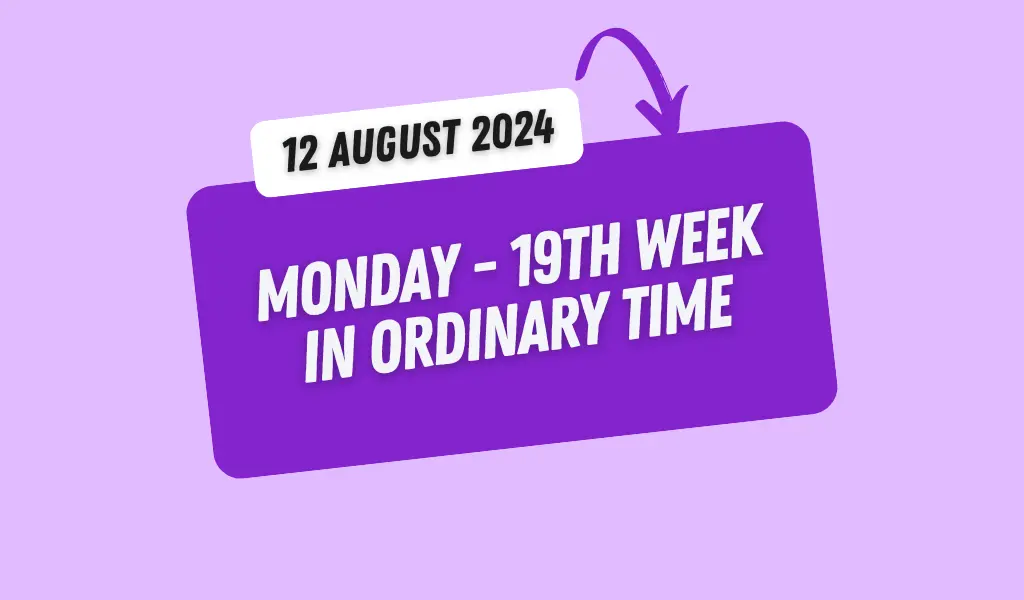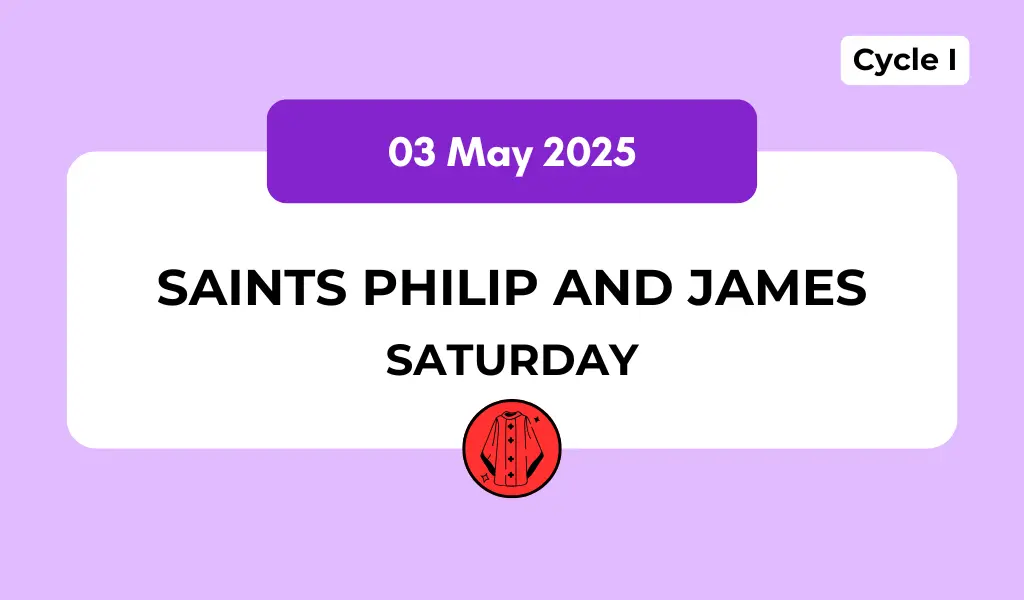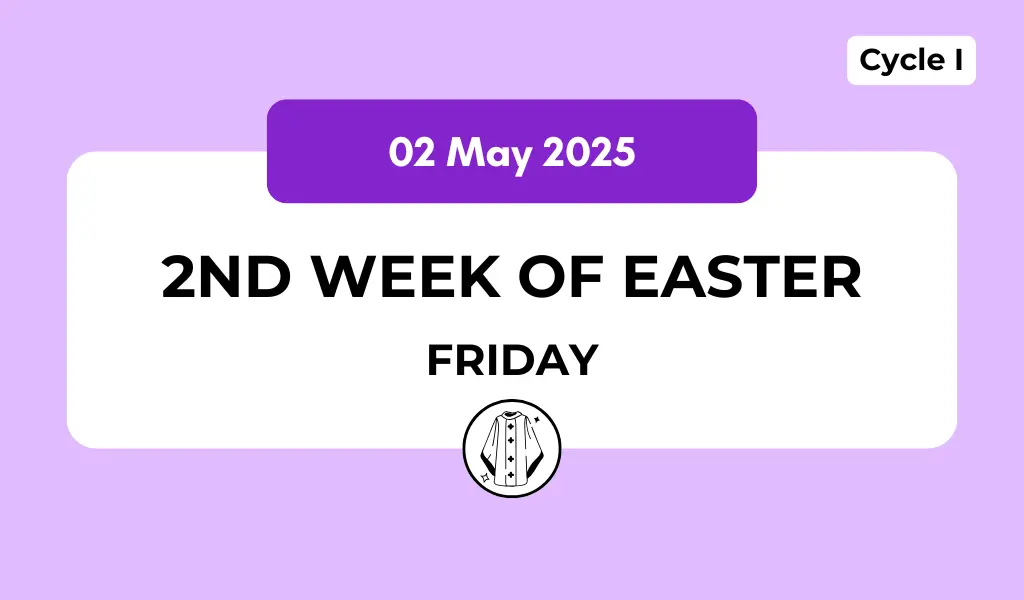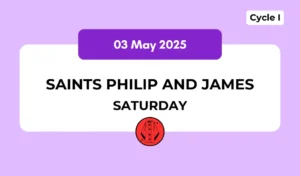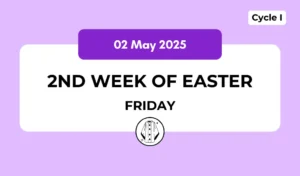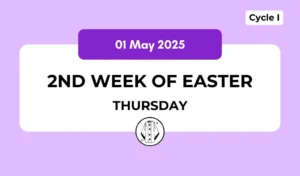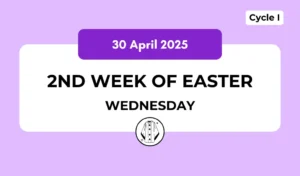Catholic Mass Readings and Reflection August 12, 2024
Nineteenth Week of Ordinary Time
12th August 2024 (Monday)
Psalter: Week 3
Reading of the Day
First Reading: Ezekiel 1:2-5, 24-28c
On the fifth day of the month (it was the fifth year of the exile of King Jehoiachin), the word of the Lord came to Ezekiel the priest, the son of Buzi, in the land of the Chaldeans by the Chebar canal, and the hand of the Lord was upon him there. As I looked, behold, a stormy wind came out of the north, and a great cloud, with brightness round it, and fire flashing forth continually, and in the midst of the fire, as it were gleaming metal. And from the midst of it came the likeness of four living creatures. And this was their appearance: they had a human likeness. And when they went, I heard the sound of their wings like the sound of many waters, like the sound of the Almighty, a sound of tumult like the sound of an army. When they stood still, they let down their wings. And there came a voice from above the expanse over their heads. When they stood still, they let down their wings. And above the expanse over their heads there was the likeness of a throne, in appearance like sapphire; and seated above the likeness of a throne was a likeness with a human appearance. And upward from what had the appearance of his waist I saw as it were gleaming metal, like the appearance of fire enclosed all round. And downward from what had the appearance of his waist I saw as it were the appearance of fire, and there was brightness round him. Like the appearance of the bow that is in the cloud on the day of rain, so was the appearance of the brightness all round. Such was the appearance of the likeness of the glory of the Lord. And when I saw it, I fell on my face.
Psalm 148:1-2, 11-12, 13, 14
R/. Heaven and earth are full of your glory
Gospel Acclamation
V/. Alleluia
R/. Alleluia
V/. God has called us through the Gospel, to obtain the glory of our Lord Jesus Christ
R/. Alleluia.
Gospel : Matthew 17:22-27
At that time: As the disciples were gathering in Galilee, Jesus said to them, “The Son of Man is about to be delivered into the hands of men, and they will kill him, and he will be raised on the third day.” And they were greatly distressed. When they came to Capernaum, the collectors of the twodrachma tax went up to Peter and said, “Does your teacher not pay the tax?” He said, “Yes.” And when he came into the house, Jesus spoke to him first, saying, “What do you think, Simon? From whom do kings of the earth take toll or tax? From their sons or from others?” And when he said, “From others”, Jesus said to him, “Then the sons are free. However, not to give offence to them, go to the lake and cast a hook and take the first fish that comes up, and when you open its mouth you will find a shekel. Take that and give it to them for me and for yourself.
Daily Gospel Reflection
Monday – Nineteenth Week of Ordinary Time
Guidelines: We are free children of God and so not bound by the fetters of sin. Therefore, we must conduct ourselves as aliens to this world and also as bound by certain duties
1. The gospel passage combines two reference points. One is a prediction about his passion, death, and resurrection. The other is the question of tax-pay. Obviously, both seem to be quite divergent and separate topics. But there is one underlying theme. That is the question of true freedom and obligation.
2. Jesus suffers suffering and death to free us from the bondage of sin. His suffering and death are clear signs that he does not succumb to the pressure and power of evil. His resurrection is a testimony that he has conquered sin and obtained liberation.
3. Whether to pay the taxes or not to the state was the question. In one sense, Jesus and his team are tax-free because they are the sons of the soil. They are the chosen people. They are the inheritors of the earth according to the beatitudes. They are the free children of God. They are not bound by the wages of sin. Thus in one aspect of the spiritual sense, they are not bound by the tax.
4. However, from another aspect, they are tax-bound. It is because they are sojourners and aliens. They are the children of God and not children of the world, as heirs of the heavenly kingdom and not of the earthly kingdom.
5. Jesus’ respect for the earthly laws and duties is also appreciable. This is clear when he says, let us pay, not to give offence to the authorities. Here, the point is not whether Jesus is supporting the Roman authority, whether he is accepting the Roman subjugation, or whether he is not instilling the spirit of true freedom of the people of God.
Practice: The main point is the spirit of freedom that we need to cultivate and foster as the free children of God and heirs of heaven
